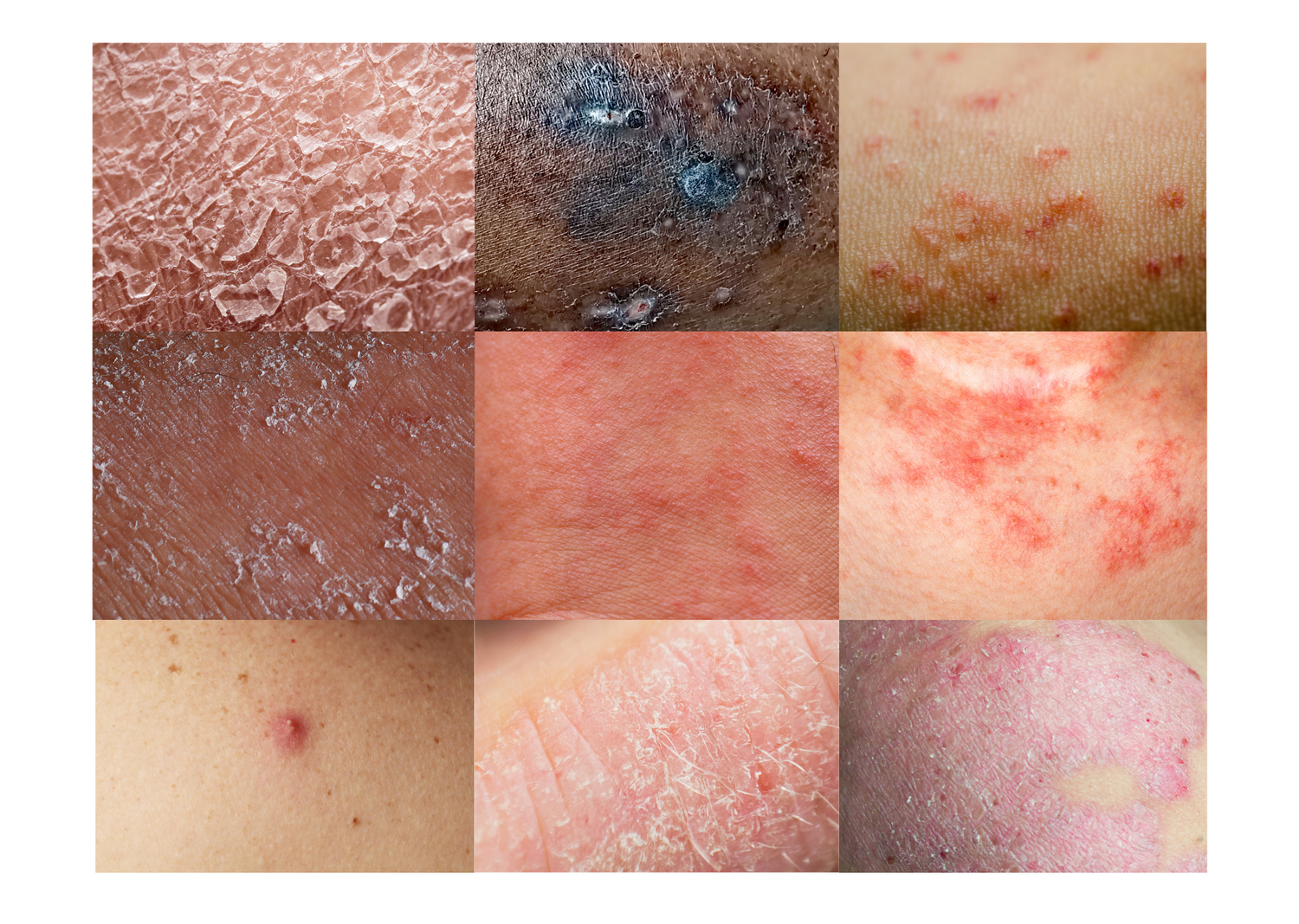
Different Types of Eczema
Taylor Liddell
The term "Eczema" refers to a group of skin conditions that are characterized by dryness, itchiness and inflammation. In lighter pigmented skin, eczema usually presents as red while this appears dark purple, gray or even ashy in color in darker pigmented skin.
Although Eczema is common, it is not contagious and even though its cause is currently unknown, scientists believe that a combination of a person's environment as well as their genetics play a role.
There are 7 different kinds of Eczema:
- Atopic Dermatitis: common; causes inflammation, dryness and itchiness; typical in small children but can affect all ages
- Contact Dermatitis: AKA "Allergic Contact Dermatitis"; influenced by a person's interactions within their environment
- Neurodermatitis: AKA "lichen simplex chronicus"; typically makes small patches of skin itchy and scaly
- Dyshidrotic Eczema: dries the skin and gives a burning sensation accompanied by rashes and blisters
- Nummular Eczema: AKA "Discoid Eczema"; causes small lesions all over the body (especially legs and arms) that are round in shape
- Seborrheic Dermatitis: Inflammatory Eczema of the scalp
- Stasis Dermatitis: Discolored skin of the legs that resemble varicose veins
All seven types have their own triggers and treatments which is why it's important to know exactly what type (if it is even eczema at all) you or your child may have. To do this, we recommend that you visit a dermatologist. This kind of doctor specializes in skin and will be able to help you determine a possible cause and a custom treatment plan.
Click HERE to find a dermatologist near you.
Information Source: National Eczema Association
